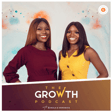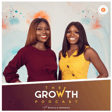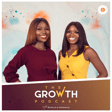
Mastering Change, Embracing Possibilities & Becoming Your Own Evangelist with Voke Elstein
In this episode, Bukola had a lovely conversation with Voke Elstein. Voke is an academic and industry trail blazer. She has previously worked at Twitter, Walmart, Exxon Mobil, Schlumberger and Proctor and Gamble. In addition, she had her undergraduate studies at the University of Ibadan, Masters Degree at Stanford University and MBA at UC Berkeley.
She talks about the importance of being your own evangelist and how to embrace new terrains successfully. She also talks about the power of Generative AI like Chat GPT and how to leverage it.
Voke shares two of her Generative AI products. One product is a guide to immigrating to the United States and the other is a Thesaurus. You should check them out.
Voke is an undoubted icon 🌟
------------------------------------------------------------------
Follow Voke on LinkedIn
------------------------------------------------------------------
Remember to,
Send us your career dilemmas here.
------------------------------------------------------------------
Check out the new website layout - Growdiance
Join our mailing list to stay up to date on everything Growdiance - Join us
------------------------------------------------------------------
Follow Bukola on LinkedIn, Twitter and Instagram
Follow Veronica on LinkedIn, Twitter and Instagram
Follow Growdiance on LinkedIn, Twitter and Instagram
------------------------------------------------------------------
Remember to leave us a 5-star ⭐️ rating.


